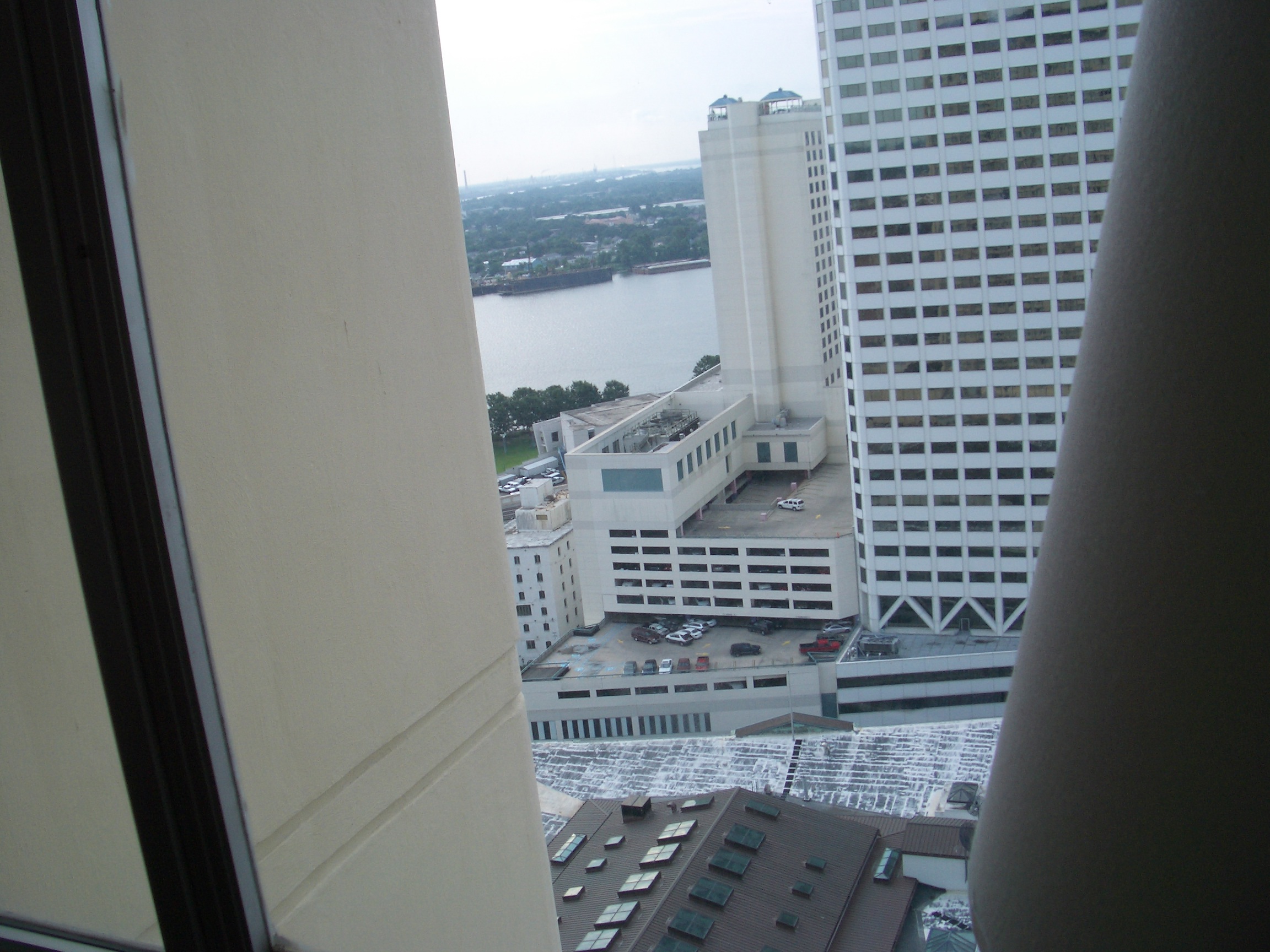
Main Page > 2005 Houston, We have a Problem !!
Not wanting to waste the remaining day, Mike and Bone arose early ready to check out the Crescent City, so despite the late evening partying on Bourbon Street, the boys bolted out the door in search of sustenance. Outside the weather was still hot and humid, which ended up having an evil portent.
Pondering the Mighty Mississippi

You can't beat the Chickory Coffee and Beignets at Cafe Du Monde
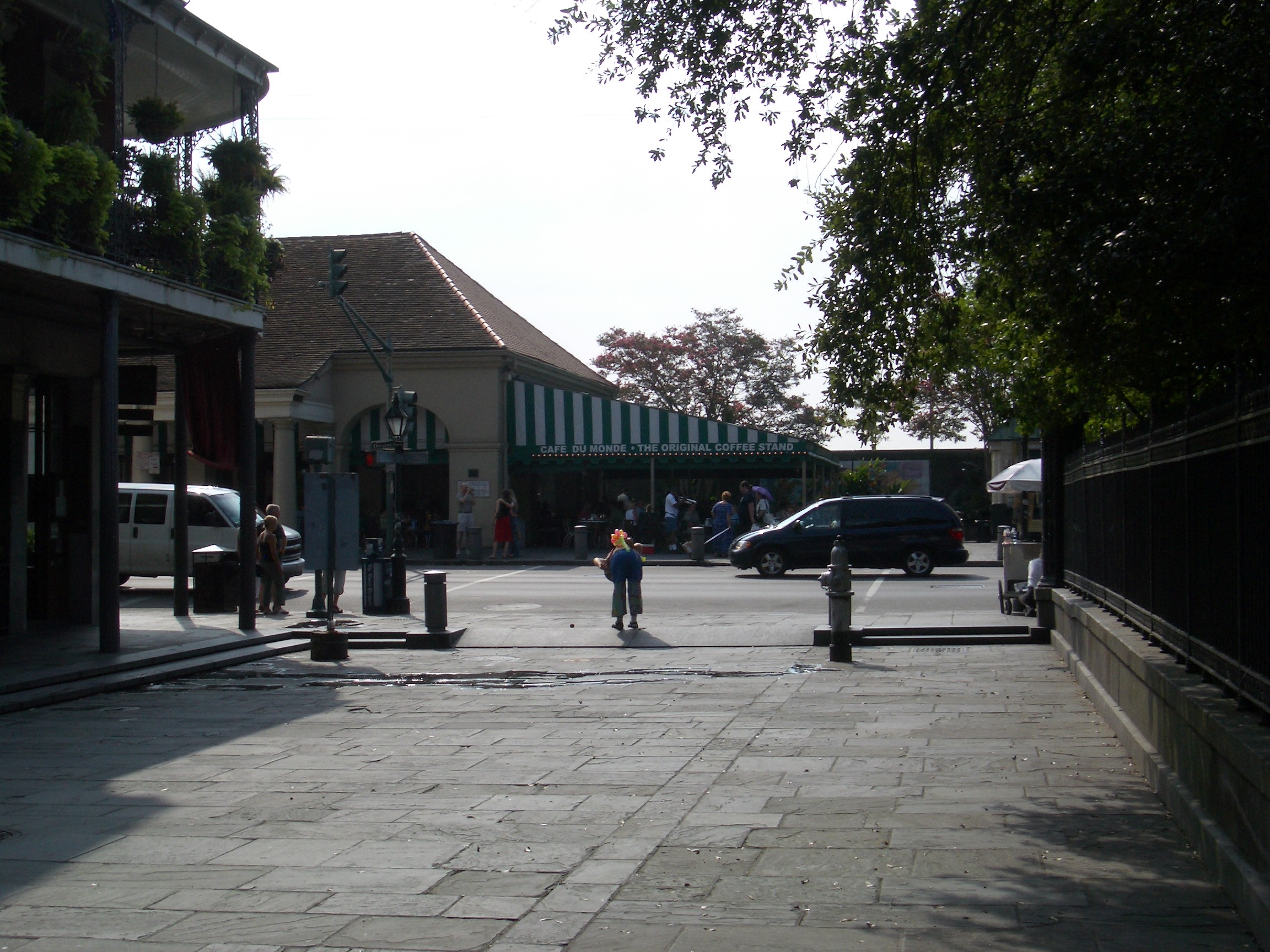
Mike and Bone, Playing in the Powered Sugared Beignets at Cafe Du Monde !
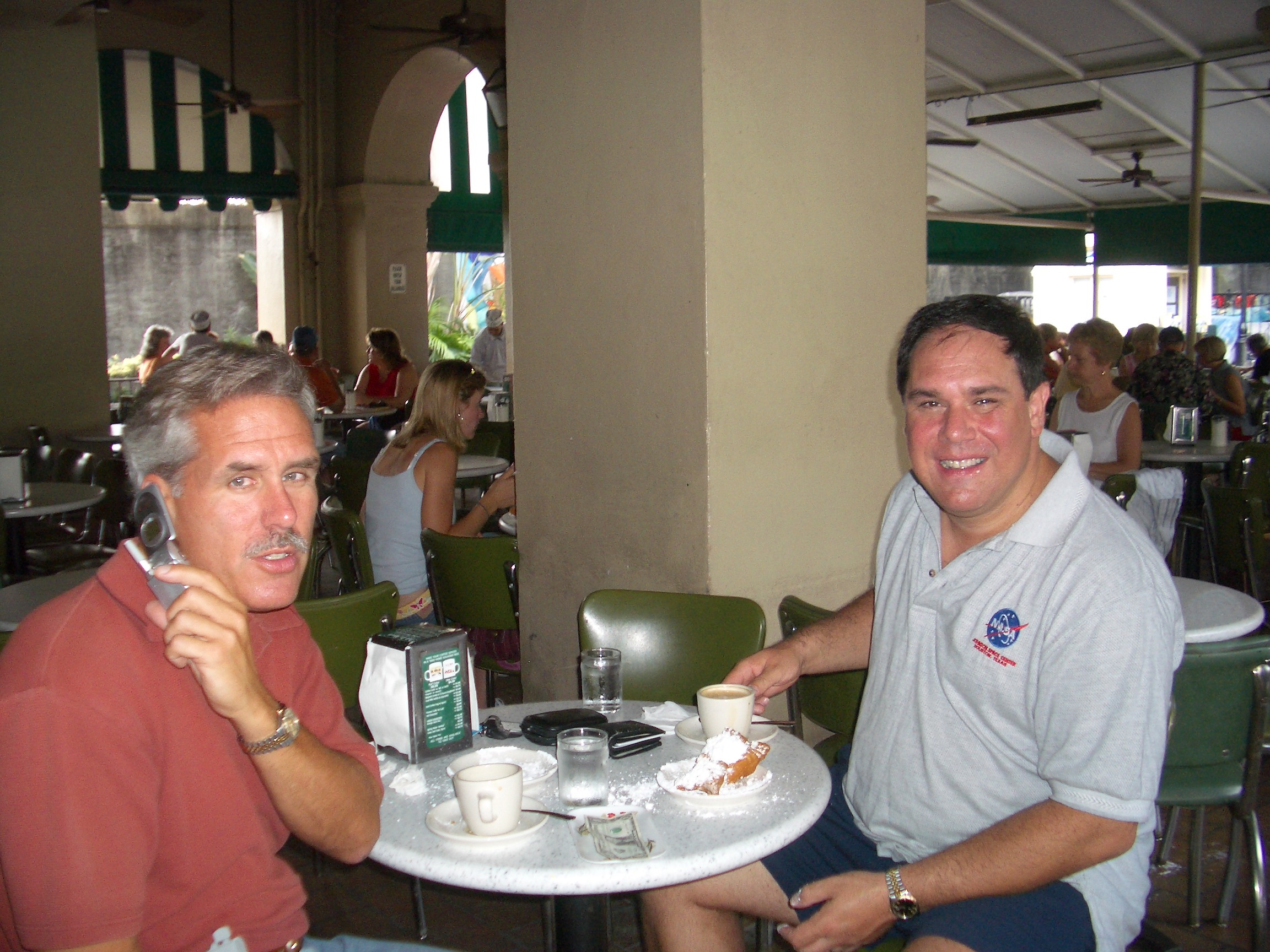
There ain't no better way to recover from an evening's excess than Chickory Coffee, powered sugar, and fried dough ! And there is no better to get these "healthy" eats than Cafe Du Monde ! Cafe Du Monde is a coffee stand where the French Quarter ends at the base of the Mississippi, and was established in 1862 in the New Orleans French Market. The Original Cafe Du Monde is a traditional N' Awlin's coffee shop. Its menu consists of dark roasted Coffee and Chicory, Beignets, White and Chocolate Milk, and fresh squeezed Orange Juice. The coffee is served Black or Au Lait. Au Lait means that it is mixed half and half with hot milk. Beignets are square French -style doughnuts, lavishly covered with powdered sugar.
Joking with Jackson at Jackson Square
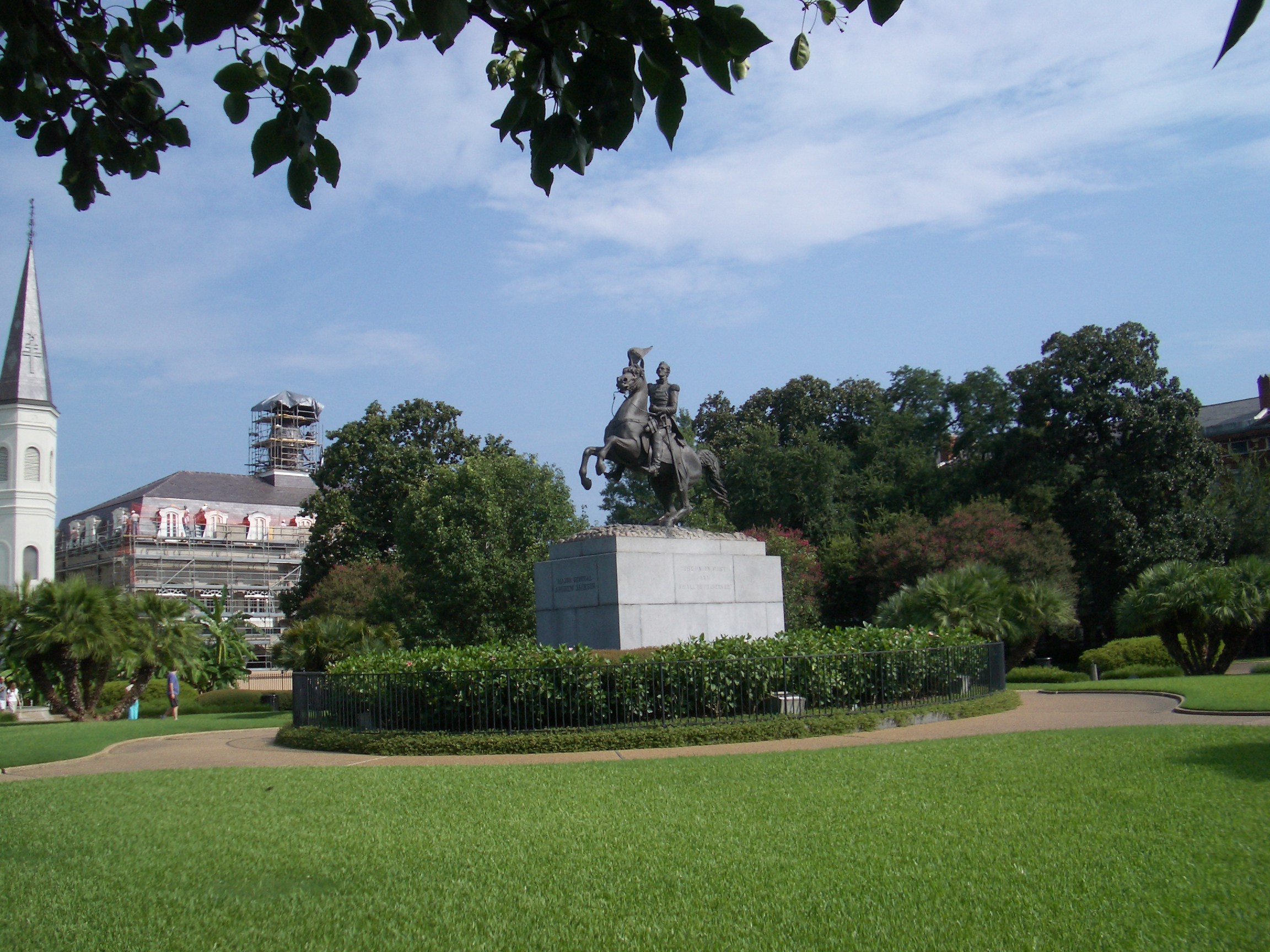
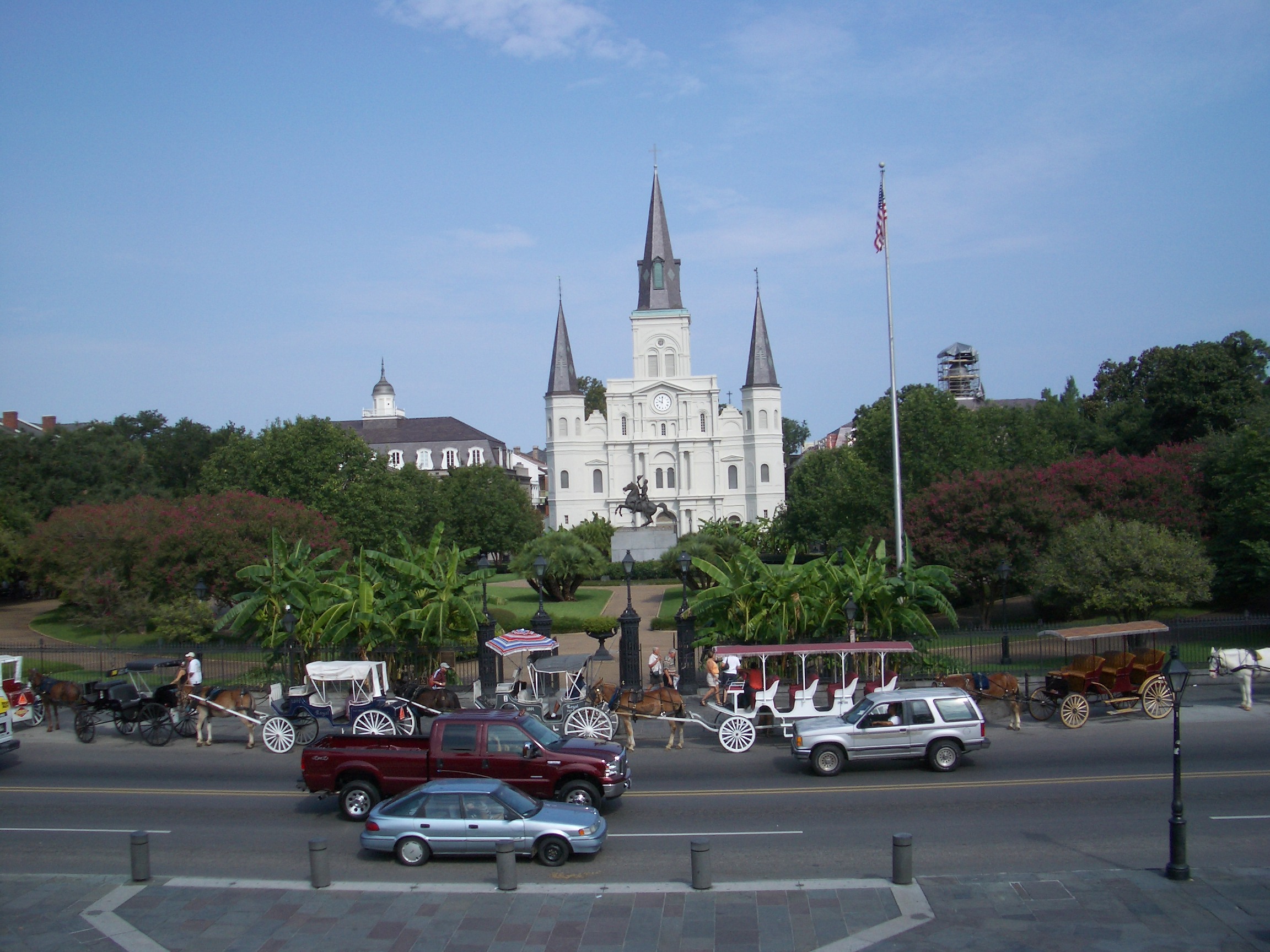
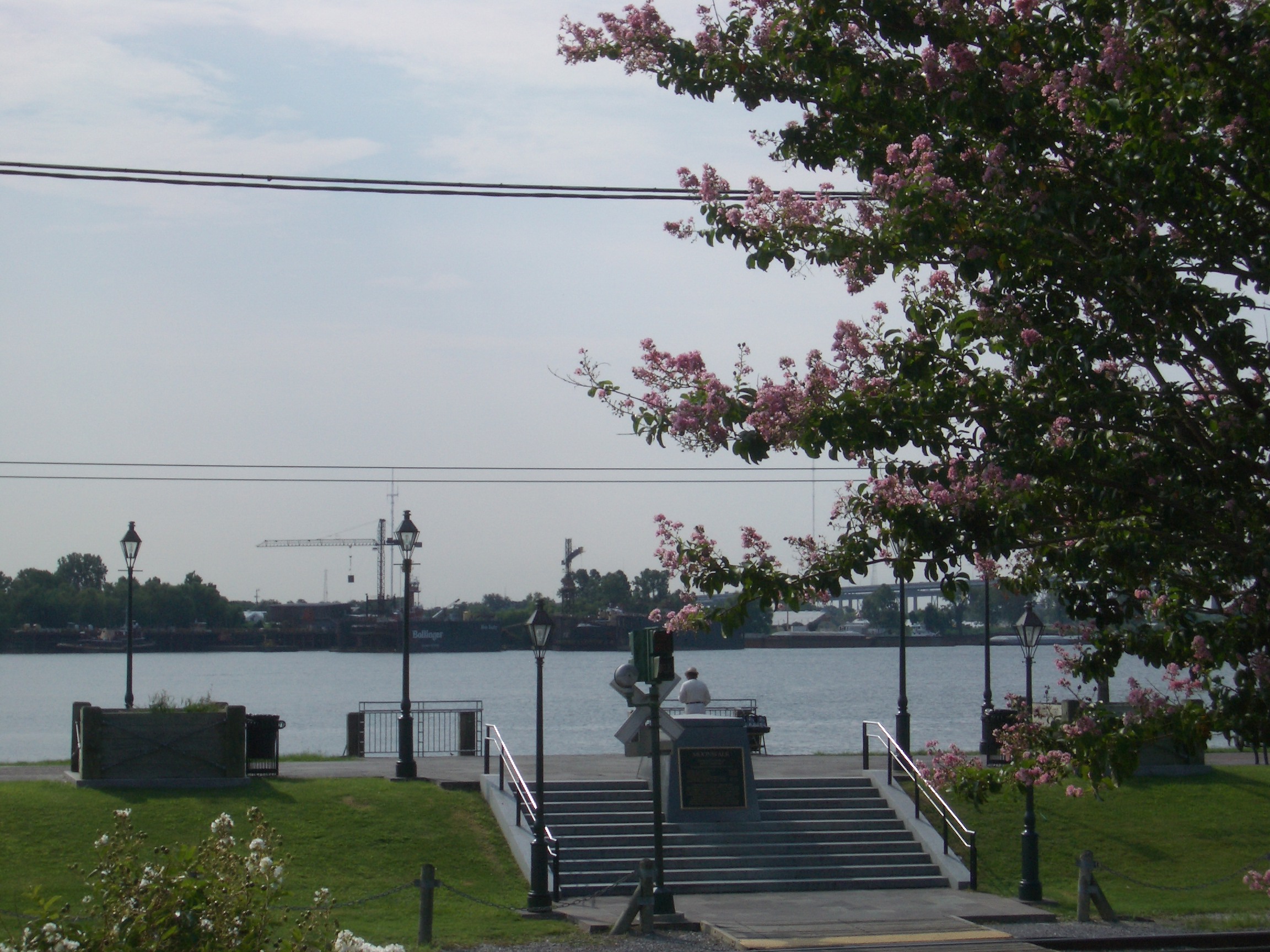
After the boys finished breaking their fast on a sugary repast, they wandered over to Jackson Square, the heart of the French Quarter. Originally, known as the Plaza d'Armas, it was a large open common, used at times as military parade grounds, and later as a market place for fish, fowl, and produce. Within the French Quarter, Jackson Square faces the Mississippi River, and is bounded by the St. Louis Cathedral, the Cabildo and the Presbytere on Chartres Street (the northwest side), and is flanked by the Upper and Lower Pontalba Apartments along St. Peter and St. Ann Streets. Inside is its namesake, a statue of Andrew Jackson, and hero of the Battle of New Orleans. With time on their side and Jackson on their minds, the Boys droved down to check out the Battle of New Orleans at Chalmette Field.
Mike and Bone ready for the Redcoats at the Battle of New Orleans at Chalmette Battle Field
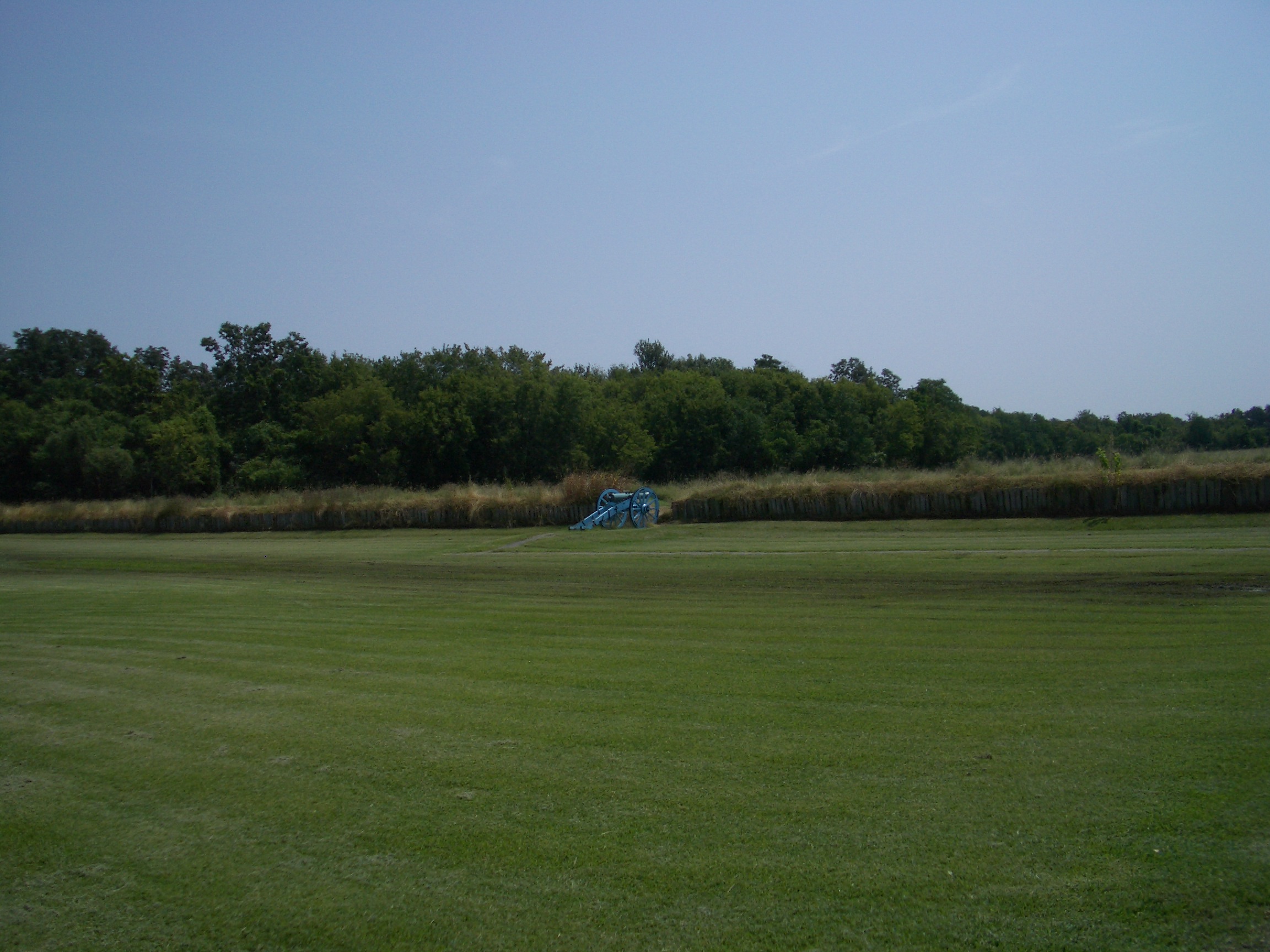
The British may have reconsidered their ill-fated outing against the Motley Band of Americans at the Battle of New Orleans if they knew all the facts. Never has a more polyglot army fought under the Stars and Stripes than did Jackson's force at the Battle of New Orleans. In addition to his regular U.S. Army units, Jackson counted on dandy New Orleans militia, a sizable contingent of black former Haitian slaves fighting as free men of color, Kentucky and Tennessee frontiersmen armed with deadly long rifles and a colorful band of outlaws led by Jean Lafitte, whose men Jackson had once disdained as "hellish banditti." This hodgepodge of 4,000 soldiers, crammed behind narrow fortifications, faced more than twice their number.
The British General, Pakenham assault on the Jackson's outfit was doomed from the beginning. His men made perfect targets as they marched precisely across a quarter mile of open ground. Hardened veterans of the Peninsular Campaign in Spain fell by the score, including nearly 80 percent of a splendid Scottish Highlander unit that tried to march obliquely across the American front. Both of Pakenham's senior generals were shot early in the battle, and the commander himself suffered two wounds before a shell severed an artery in his leg, killing him in minutes. His successor wisely disobeyed Pakenham's dying instructions to continue the attack and pulled the British survivors off the field. More than 2,000 British had been killed or wounded and several hundred more were captured. The American loss was only eight killed and 13 wounded. Truly Jackson Saved New Orleans for the American, only for the city to be plundered by Mike, Bone, and Katrina.
The Lack of British Strategy
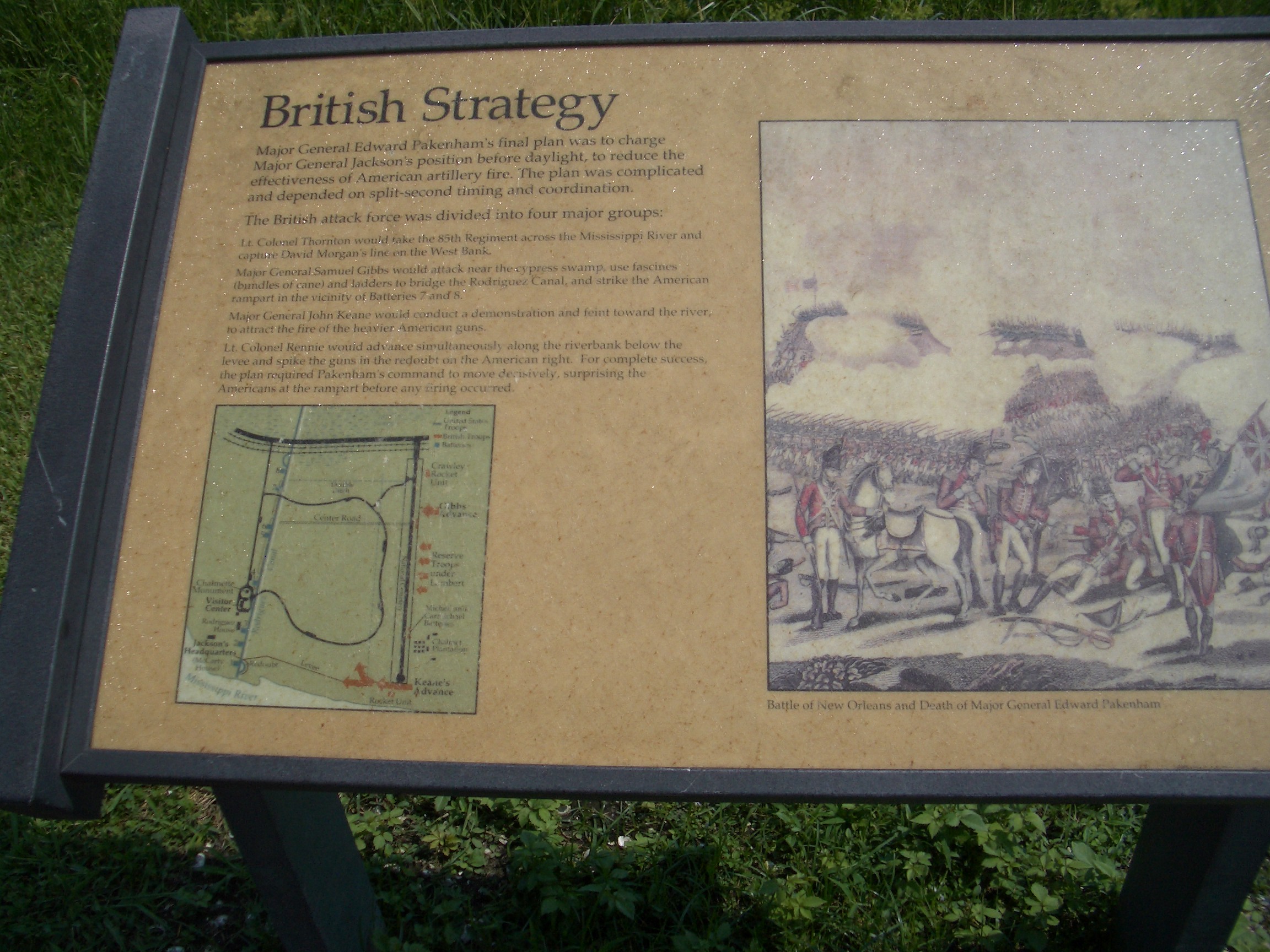
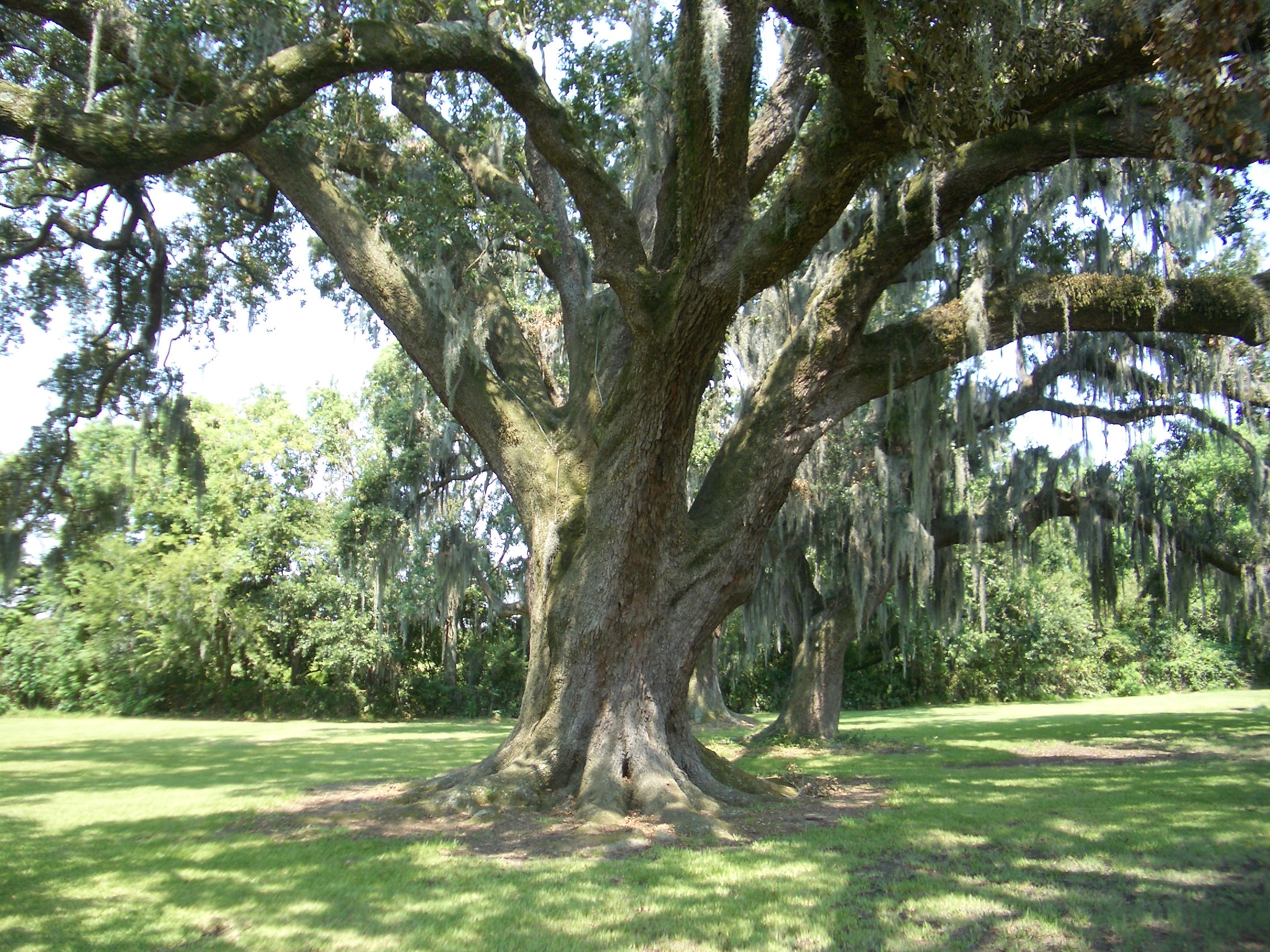
Jean Lafitte, the
New Orleans-Galveston Connection One
of the major reasons Jackson carried the day over the British was Jean Laffite,
a New Orleans smuggler, pirate, and patriot. Lafitte provide both men, cannon,
and ammunition which protected the entire right side of Jackson's Army.
Lafitte had a colorful background, in 1810, he became chief of a band
of pirates with headquarters on Grande Terre Island in Barataria Bay in the Gulf
of Mexico just south of New Orleans. With his brother Pierre, he commanded a
fleet of ships and raided both Spanish and neutral vessels in the Gulf. His
ships flew the flags of the Central and South American nations revolting against
Spain.
In 1813, Governor William Claiborne of Louisiana offered $500 for Laffite's
capture. Laffite, then at the height of his power, boldly offered $1,500 for the
governor's head. All efforts to take and prosecute Laffite under the law failed.
By 1814, the British were at war with the United States. They offered Laffite
$30,000, a pardon, and a naval captaincy if he would aid them in attacking New
Orleans. Being a patriotic Amreican (plus hating on the British), he refused, informed the U.S. government of the plans, and offered the
services of the Barataria smugglers to the United States. For fighting with Jackson in the Battle of New Orleans,
he did
received a pardon from President James Madison. But the peace with the
Government only lasted a short time. He was back to piracy and the Governments
bad graces shortly after his pardon to the point that they raided and destroyed
his base of operations in Barataria.
After the
American forces destroyed Barataria, Laffite moved to
Galveston Island. There, he established a town called Campeachy and again returned to
piracy. After he raided the Louisiana coast and scuttled an American ship, the
United States sent an expedition in 1821 to destroy the Galveston pirate colony. Laffite quietly yielded, set fire to his town, and sailed away into the mists of
history. The foundations of his Campeachy estate can still be found in
Galveston.
Having Solved the question of Jackson, Lafitte, and the blown British blunder, the Boys headed back to the City some quick Creole cuisine in a chi-chi restaurant in the French Quarter.
A Fond Farewell to the "Houston, We Have a Problem", Hall of Shame
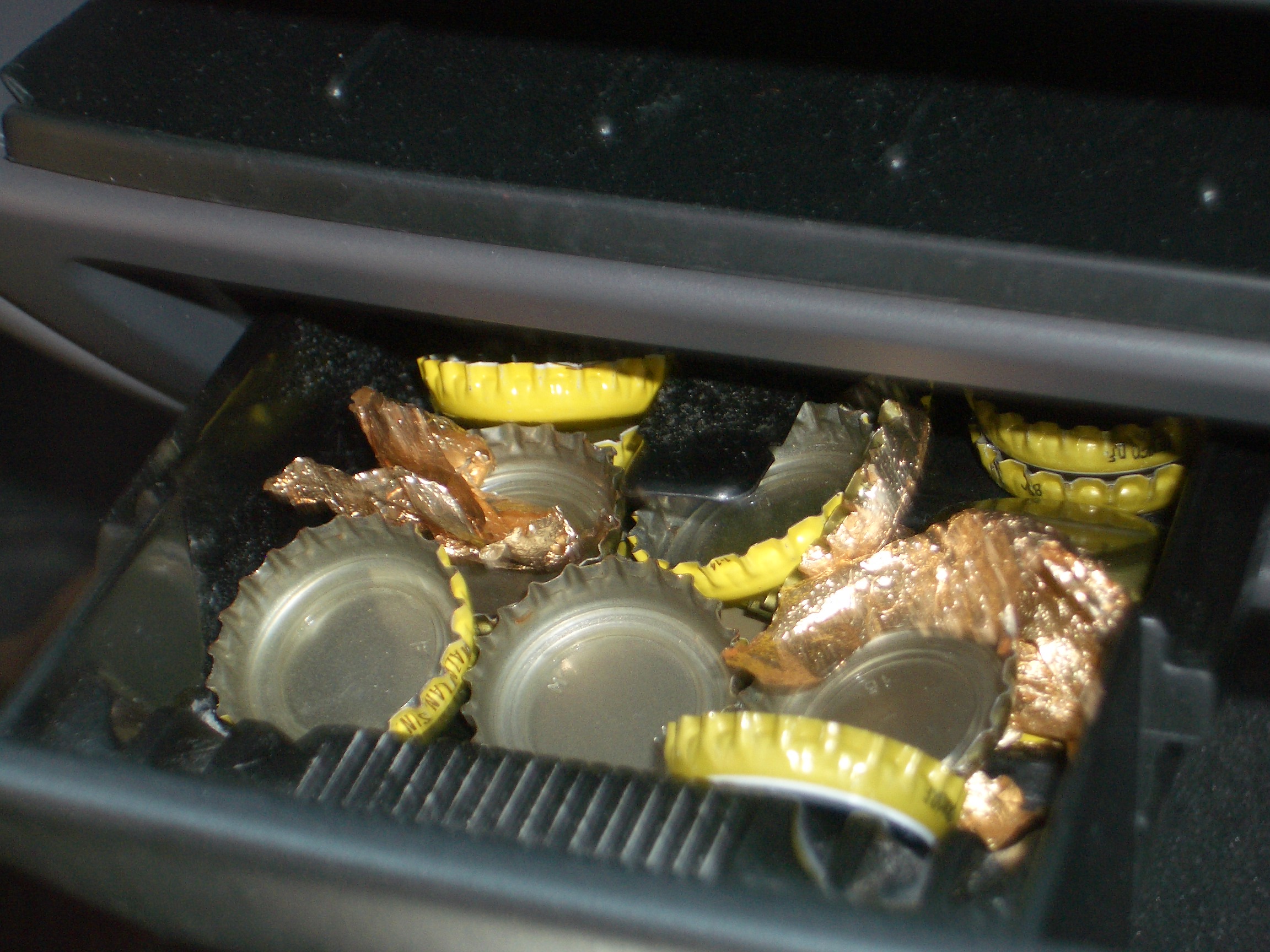
A Very Sad Trip, Postscript
By 2:00 in the afternoon the Boys were on time to the airport and glad to be flying towards less hot and humid climes. Little did the Boys know as they took off in the blue sun-filled skies that exactly one week to the day that the sun-filled skies were replaced with the dark skies of Hurricane Katrina, which breached the levies protecting New Orleans, from Lake Ponchtrain and the Mississippi River, flooding the Crescent City, killing hundreds and potentially ruining New Orleans forever,
Sadly, Mike and Bone may have had the last hurricanes before the Hurricane.